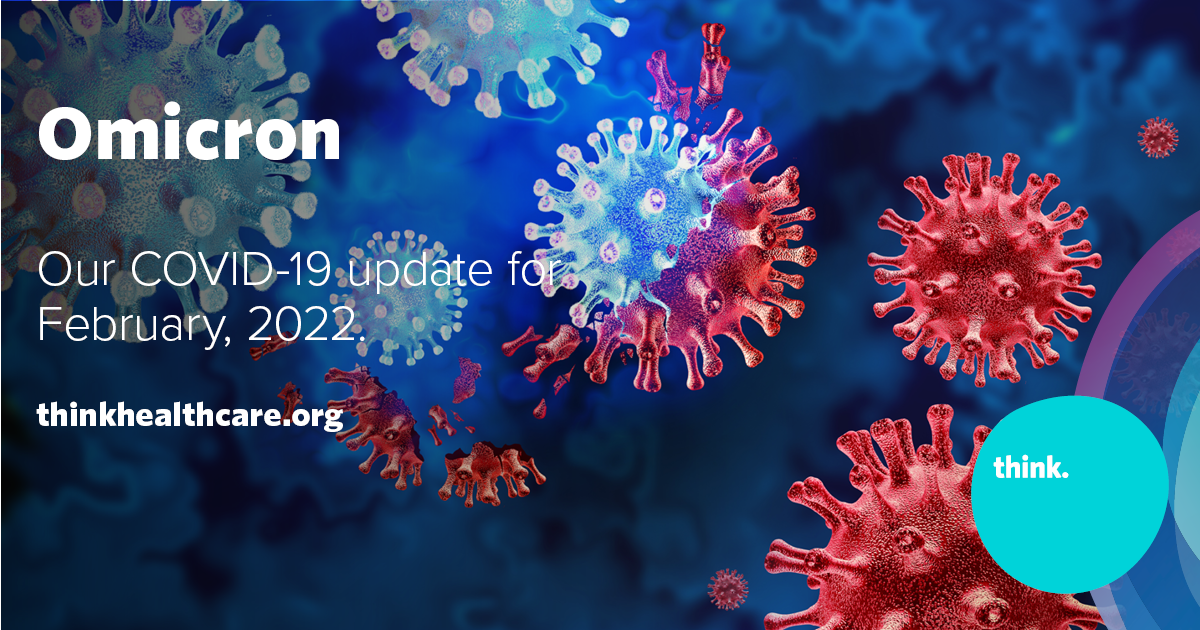On New Year’s Eve, I was so excited to say “goodbye” to 2021 and welcome 2022 and hoped COVID-19 would become a distant memory. Unfortunately, the pandemic had other plans. Here we are, February of 2022, and the Omicron variant is working its way through our area. Here is our COVID Update for 2022.
Hospitals see a record number of cases, and the Douglas County Health Director implemented a mask mandate. Even though it seems like 2022 may be a repeat of the previous year, there is hope.
Here’s what we know so far COVID-19 in 2022
- There is a wide range of symptoms for COVID-19.
- The variant doesn’t determine the symptoms.
- Omicron appears to be milder than Delta
- Approximately 64.5% of Douglas County residents are vaccinated for COVID-19
- More than 1 million vaccination doses have been administered in Douglas County.
- Hospital occupancy rates are still quite high averaging above 84%
- Most patients admitted to the hospital are unvaccinated.
- A majority of people who have been vaccinated are becoming eligible for their booster dose
- Children are now eligible for vaccinations, and almost 120,000 have been vaccinated!
- Regardless of the variant, they are still the same SARS-CoV-2 virus
- Testing for COVID-19 is readily available, and in-home kits can be purchased online and at most pharmacies
- The Federal government has made it possible for everyone to have access to testing—free of charge.
Every day medical researchers and infectious disease experts learn more about the SARS-CoV-2 virus and continue to improve treatment programs for those presenting more severe symptoms, and outcomes are improving for hospitalized patients. Data continues to pour in, showing that the available vaccinations greatly reduce the chance of contracting COVID-19. Vaccinations also help reduce the severity of symptoms if you were to contract COVID.
The Centers for Disease Control continue to publish frequent updates, and the medical community is ready to adjust practices based on their findings.
What can you do to minimize the risk of getting COVID?
Although there is no sure-fire way to avoid contracting COVID, you can take several steps to help reduce the opportunity to get exposed and infected.
- Wear a face mask in public and around others outside of those living with you.
- Get vaccinated and if you qualify, get your booster shot.
- Get your flu shot!
- If you haven’t been to your doctor for your annual physical, this is the time to do so. Having a baseline for your health is important if you do contract COVID in the future. In the meantime, don’t put off seeing your doctor if you need medical assistance. If you are nervous about coming to the clinic, our Virtual Care Connection (telehealth) may be a good option.
- Continue to wash your hands and avoid the 3 C’s:
- Crowded places
- Close contact
- Confined spaces
- Wash your hands
- If you think you were exposed to COVID or experiencing symptoms, get tested!
What if I suspect I may have COVID?
COVID is sometimes hard to diagnose without proper testing. A lot of the symptoms are similar to influenza and the common cold. The CDC published this list of the most common symptoms. If you have COVID, you may experience some or all of these:
- Fever or chills
- Cough
- Shortness of breath or difficulty breathing
- Fatigue
- Muscle or body aches
- Headache
- New loss of taste or smell
- Sore throat
- Congestion or runny nose
- Nausea or vomiting
- Diarrhea
If you are experiencing any of these, it’s best to get tested. Symptoms may appear anywhere from 2-14 days after exposure. People are most-contagious about two days before and three days after the onset of symptoms, so getting tested as soon as you suspect is critical so you can isolate or quarantine if you do test positive. Home “self-testing” kits are available at almost every pharmacy and online. You must follow the instructions to get incorrect results if you aren’t swabbing correctly. To be certain you don’t have COVID, we recommend getting tested at your doctor’s office.
Think Whole Person Healthcare has a walk-in clinic that is open seven days a week: Mon-Fri, 7 am – 8 pm, Sat-Sun, 9 am-5 pm, where you can get tested. We have set up a special area in our lobby for folks who think they have COVID. When you arrive, tell the think staff at the front desk, and they will have someone from thinkQuick come down and administer a test. You don’t have to be a think patient to use our walk-in clinic and, if you don’t have a Primary Care provider, get one! Visit our “Meet your Doctor” page to learn more about the providers at think.
Final thoughts.
When I look back at two years, conditions are getting better, and we continue to move in the right direction, but it will take teamwork from everyone to overcome COVID. We all need to continue to:
- Be diligent with our hand washing and wearing masks
- Be kind to others
- Offer help when we can
- Get vaccinated and boosted
